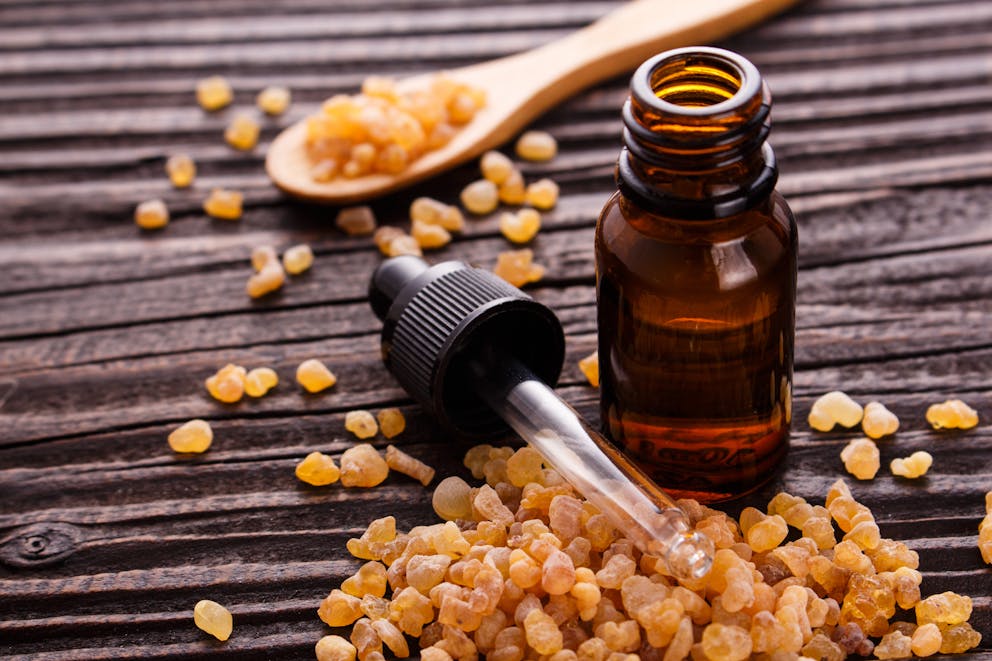7 Essential Oils for Toothaches – Natural Tooth Pain Remedies

25 Top Home Remedies That Really Work
Explore powerful home remedies for common health issues
Discover how to use everyday household ingredients to address minor ailments
Get practical tips for the safe and effective use of home remedies

25 Top Home Remedies That Really Work
Explore powerful home remedies for common health issues
Discover how to use everyday household ingredients to address minor ailments
Get practical tips for the safe and effective use of home remedies

25 Top Home Remedies That Really Work
Explore powerful home remedies for common health issues
Discover how to use everyday household ingredients to address minor ailments
Get practical tips for the safe and effective use of home remedies

25 Top Home Remedies That Really Work
Explore powerful home remedies for common health issues
Discover how to use everyday household ingredients to address minor ailments
Get practical tips for the safe and effective use of home remedies

25 Top Home Remedies That Really Work
Explore powerful home remedies for common health issues
Discover how to use everyday household ingredients to address minor ailments
Get practical tips for the safe and effective use of home remedies

25 Top Home Remedies That Really Work
Explore powerful home remedies for common health issues
Discover how to use everyday household ingredients to address minor ailments
Get practical tips for the safe and effective use of home remedies

25 Top Home Remedies That Really Work
Explore powerful home remedies for common health issues
Discover how to use everyday household ingredients to address minor ailments
Get practical tips for the safe and effective use of home remedies

25 Top Home Remedies That Really Work
Explore powerful home remedies for common health issues
Discover how to use everyday household ingredients to address minor ailments
Get practical tips for the safe and effective use of home remedies

25 Top Home Remedies That Really Work
Explore powerful home remedies for common health issues
Discover how to use everyday household ingredients to address minor ailments
Get practical tips for the safe and effective use of home remedies

25 Top Home Remedies That Really Work
Explore powerful home remedies for common health issues
Discover how to use everyday household ingredients to address minor ailments
Get practical tips for the safe and effective use of home remedies

25 Top Home Remedies That Really Work
Explore powerful home remedies for common health issues
Discover how to use everyday household ingredients to address minor ailments
Get practical tips for the safe and effective use of home remedies

25 Top Home Remedies That Really Work
Explore powerful home remedies for common health issues
Discover how to use everyday household ingredients to address minor ailments
Get practical tips for the safe and effective use of home remedies

How to Read Your Body
Learn to recognize common symptoms and uncover their underlying health issues
Understand the signs of nutrient deficiencies to manage your health
Explore the four metabolic body types and the core factors that influence them
Interpret your body's signals from head to toe to identify potential health concerns

How to Read Your Body
Learn to recognize common symptoms and uncover their underlying health issues
Understand the signs of nutrient deficiencies to manage your health
Explore the four metabolic body types and the core factors that influence them
Interpret your body's signals from head to toe to identify potential health concerns

How to Read Your Body
Learn to recognize common symptoms and uncover their underlying health issues
Understand the signs of nutrient deficiencies to manage your health
Explore the four metabolic body types and the core factors that influence them
Interpret your body's signals from head to toe to identify potential health concerns

How to Read Your Body
Learn to recognize common symptoms and uncover their underlying health issues
Understand the signs of nutrient deficiencies to manage your health
Explore the four metabolic body types and the core factors that influence them
Interpret your body's signals from head to toe to identify potential health concerns

How to Read Your Body
Learn to recognize common symptoms and uncover their underlying health issues
Understand the signs of nutrient deficiencies to manage your health
Explore the four metabolic body types and the core factors that influence them
Interpret your body's signals from head to toe to identify potential health concerns

How to Read Your Body
Learn to recognize common symptoms and uncover their underlying health issues
Understand the signs of nutrient deficiencies to manage your health
Explore the four metabolic body types and the core factors that influence them
Interpret your body's signals from head to toe to identify potential health concerns

How to Read Your Body
Learn to recognize common symptoms and uncover their underlying health issues
Understand the signs of nutrient deficiencies to manage your health
Explore the four metabolic body types and the core factors that influence them
Interpret your body's signals from head to toe to identify potential health concerns

How to Read Your Body
Learn to recognize common symptoms and uncover their underlying health issues
Understand the signs of nutrient deficiencies to manage your health
Explore the four metabolic body types and the core factors that influence them
Interpret your body's signals from head to toe to identify potential health concerns

How to Read Your Body
Learn to recognize common symptoms and uncover their underlying health issues
Understand the signs of nutrient deficiencies to manage your health
Explore the four metabolic body types and the core factors that influence them
Interpret your body's signals from head to toe to identify potential health concerns

How to Read Your Body
Learn to recognize common symptoms and uncover their underlying health issues
Understand the signs of nutrient deficiencies to manage your health
Explore the four metabolic body types and the core factors that influence them
Interpret your body's signals from head to toe to identify potential health concerns

How to Read Your Body
Learn to recognize common symptoms and uncover their underlying health issues
Understand the signs of nutrient deficiencies to manage your health
Explore the four metabolic body types and the core factors that influence them
Interpret your body's signals from head to toe to identify potential health concerns

How to Read Your Body
Learn to recognize common symptoms and uncover their underlying health issues
Understand the signs of nutrient deficiencies to manage your health
Explore the four metabolic body types and the core factors that influence them
Interpret your body's signals from head to toe to identify potential health concerns
While essential oils aren’t a substitute for professional dental care, they can help to alleviate toothache pain and may improve symptoms of gum disease.
Clove oil, peppermint oil, cinnamon oil, and frankincense oil have potent analgesic and antibacterial properties, making them some of the best essential oils for toothache.
Learn about the best natural remedies for dental pain.

What are essential oils?
Essential oils are highly concentrated plant extracts that contain complex aromatic substances and bioactive plant chemicals such as aldehydes, fatty acids, phenols, esters, alcohols, nitrogen, and sulfur compounds.
There are more than 100 pure essential oils derived from different parts of plants, such as flowers, leaves, stems, bark, and roots.
Different essential oils have unique chemical compositions, which explains why essential oils have such a wide range of medicinal, therapeutic, aromatic, and culinary uses.
Watch the video below to learn why clove oil is one of the most effective essential oils for a painful tooth.
What causes toothaches?
Toothaches can be excruciatingly painful and strike without warning.
Dietary habits play a significant role in oral health, and it’s well established that a high-sugar and carb diet significantly increases the risk of caries and oral thrush, the leading causes of tooth decay and gum diseases, including periodontitis and gingivitis.
According to a report published by the American Dental Association, “The relationship between caries and carbohydrates is fairly well understood. Dental hard tissues are demineralized by acidic by-products produced by bacteria via the fermentation of dietary carbohydrates. Carbohydrate consumption is, therefore, an important nutritional factor in the development of caries.”
Here are some common causes of toothaches:
Cavities and tooth decay
A fractured or damaged tooth
A broken or loose filling
Oral abscess
Sensitive teeth or gums
Oral infections

How do essential oils help with tooth pain?
Several essential oils have potent anti-inflammatory properties that have been found to reduce inflammation and swelling associated with tooth pain and irritated gum tissue.
“Many essential oils don’t just help to relieve pain,” explains Dr. Berg. “They also possess antibacterial and anti-inflammatory properties, which may ease the symptoms of bacterial tooth infections and gum disease.”
Other essential oils, such as bergamot and lavender oil, have relaxing and calming properties that can be used as aromatherapy to reduce stress and anxiety associated with dental pain.

Seven best essential oils for toothaches
The use of essential oils in dentistry dates back to ancient civilizations, where plant extracts were utilized for various oral health purposes.
Essential oils continue to play a role in modern dental care, and research is ongoing to investigate their antimicrobial, anti-inflammatory, and analgesic properties in the management of oral infections and toothaches and in promoting overall oral health.
Here are seven of the best essential oils for toothaches.
1. Clove essential oil
Clove oil has been used to manage toothaches for centuries.
A study published in the Journal of Phytomedicine suggests that eugenol, a potent bioactive compound in clove oil, inhibits pro-inflammatory prostaglandins responsible for the swelling and pain associated with toothache.
This explains why clove oil can act as a natural anesthetic and temporarily relieve tooth pain.
2. Peppermint essential oil
Peppermint oil is rich in menthol, which has cooling effects and can alleviate pain sensations.
Menthol also is an antimicrobial agent that may combat potentially harmful bacteria linked to tooth decay and gum disease.
3. Cinnamon essential oil
Cinnamaldehyde, a plant compound derived from cinnamon, has shown antimicrobial activity against several oral microbes, including bacterial strains and yeasts linked to dental infections.
By inhibiting microbial growth, cinnamon essential oil may be beneficial in helping manage toothaches caused by oral infections.

4. Frankincense essential oil
Frankincense essential oil, also known as olibanum oil, is derived from Boswellia tree resin.
While it’s not typically used for pain relief, frankincense oil possesses anti-inflammatory properties that may help reduce inflammation and benefit inflammatory gum conditions such as gingivitis or periodontitis.
5. Tea tree essential oil
Tea tree oil can help remove dental plaque and lower the risk of tooth decay.
It’s also a rich source of powerful antibacterial plant extracts with powerful anti-inflammatory effects that can help reduce inflammation and swelling in the oral cavity.
6. Pine oil
Pine oil may have mild pain-relieving properties when topically applied to gum tissue.
Diluted pine oil can also be used as an effective antiseptic mouthwash that may inhibit the buildup of plaque and has been found to prevent microbial-related bad breath.
7. Green tea essential oil
Green tea essential oils and extracts are often found in natural toothpaste and dental rinses.
Green tea is a rich source of antioxidants, such as catechins and polyphenols. These antioxidants have various health benefits and may protect against oral diseases and inflammation in the mouth.

How to use essential oils for toothaches
Essential oils are highly concentrated and may cause skin irritations when applied directly to sensitive gum tissue, and it’s crucial to use these oils in diluted form to manage toothaches.
It’s generally recommended to mix two to three drops of essential oil with a carrier oil like coconut oil. Soak a clean cotton ball in the diluted oil mixture, gently apply it to the affected area, and hold it in place for around five minutes.
To counteract muscle tension and stress caused by dental pain, use calming lavender essential oil in a diffuser, add a few drops to your bathwater, or gently massage diluted lavender oil to wrists, temples, and the back of the neck.
When to see your dentist
While some cases of mild toothache or gum irritation may be managed with essential oils, more severe cases of dental pain can indicate a fractured tooth, abscesses, or gum disease.
If you are experiencing persistent or severe tooth pain, difficulty swallowing, bad breath, a foul taste in the mouth, or any discharge from the gums, it’s crucial to consult a dentist for a thorough dental evaluation.

Key takeaways
Essential oils are highly concentrated plant extracts used for various medicinal purposes for centuries.
There are several essential oils, including clove oil, cinnamon oil, and peppermint oil, with potent analgesic, anti-inflammatory, and antibacterial properties that can temporarily alleviate dental pain, combat bacterial tooth infection and promote overall oral health.
It’s important to remember to dilute essential oils with a carrier oil such as coconut or olive oil prior to topical application to avoid irritation of sensitive gum tissue.
FAQ
1. What essential oil is best for a toothache?
Clove essential oil has potent analgesic, anti-inflammatory, and antimicrobial properties, making it one of the best natural remedies for toothache and dental pain.
2. How can I get immediate relief from a toothache?
There are several essential oils, including clove oil, cinnamon oil, and peppermint oil, that have pain-relieving properties and can be effective in the management of toothache.
3. Where do you put peppermint oil for a toothache?
Peppermint oil, and most other essential oils, are highly concentrated and should be diluted prior to topical application to avoid irritation of sensitive gum tissue.
Mix two to three drops of essential oil with olive or coconut oil and use a cotton swab or cotton ball to apply the mixture to the affected tooth for around five minutes.
4. Can you put tea tree oil on your toothache?
Yes, you can apply diluted tea tree oil directly to the affected area. Tea tree oil is a powerful antimicrobial agent that can help to manage mild tooth or gum infections.
5. Is clove oil good for tooth pain?
Yes, clove oil is one of the best essential oils for tooth pain due to its analgesic properties that can temporarily relieve toothache and alleviate swelling and discomfort caused by gum infections.
6. How can I stop nerve pain in my tooth with essential oils?
Essential oils with pain-relieving and anti-inflammatory properties, such as clove oil, peppermint oil, tea tree oil, and cinnamon oil, may provide temporary relief for nerve pain in your tooth.
However, it’s important to remember that tooth-related nerve pain typically indicates an underlying dental issue that may require professional dental evaluation and treatment.
7. Can essential oils really help with toothaches?
Yes, there are several essential oils that have been found beneficial in the management of toothaches. Many essential oils have anti-inflammatory and antimicrobial properties that may combat toothaches and gum infections and can help to alleviate discomfort caused by inflamed and swollen gum tissue.
Previous blog
Does Splenda Break a Fast? Sucralose While FastingNext blog
Why Does My Poop Smell like Burnt Hair?Tags

Popular
08/21/2024
55K views
02/23/2025
46.3K views
11/18/2024
277.5K views
03/18/2024
11/21/2022




